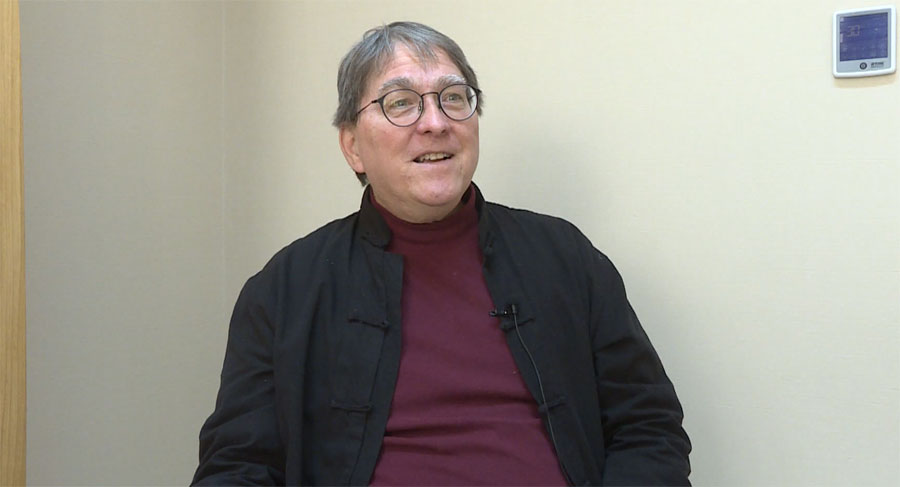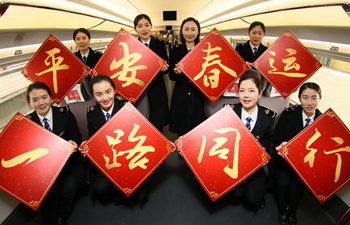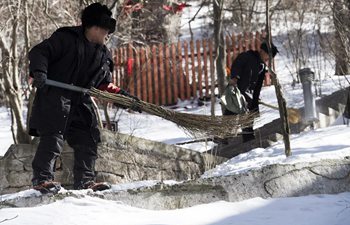
David Moser is interviewed by Xinhuanet at the Peking University in Beijing, Jan. 11, 2018. (Xinhuanet)?
BEIJING, Jan. 17 (Xinhuanet) -- Thirty-one years ago, young David Moser came to Beijing as a visiting scholar from the United States.
He never thought that Beijing would be the place he would spend most of his time which makes him a "half-Beijinger".
In 1987, Moser came to China for the first time at the Peking University to help with a book’s translation.
Like many other foreigners, he arrived in Beijing with extreme excitement and curiosity.
"The 1980s was just the beginning of China’s reform and opening-up, we foreigners at that time knew something big might happen in China, but we didn’t exactly know how China would change," said Moser.
Scenes of China in the 1980s are still vivid in his memory.
"In the 1980s, China was still a land of bicycles, no sharing bikes, but ordinary bicycles like Flying Pigeon bicycle."
"I used to bicycle to the east gate of Peking University. It is now a very developed area that almost likes silicon valley. But back then in 1980s, it was surrounded by the countryside," Moser recalled.
As a visiting scholar, Moser lived in the student dorm on campus, and bought food coupons "Fanpiao" to eat at the campus cafeteria.
He also had the experience of using Foreign Exchange Certificate (FEC) -- paper notes bought with foreign currency through banks, to buy imported goods at the Beijing Friendship Store where only FEC was accepted.
As one of the foreigners who came to China in late 1980s, Moser has witnessed China’s development and his life in Beijing was also greatly changed.
"By the 2000s, China was in
"But I think the biggest change around that time was the Internet. Internet changed everything." "Because of the Internet, Chinese people began to know more about western culture. My Chinese students even know more about my culture than I know, such as American shows and NBA. This is an enormous change," he said with amazement. Today, Moser believes that China is actually in the leading edge of many fields, specifically in new technologies, giving examples of Chinese high-speed trains and cell-phone pay. "You can travel from Shanghai to Beijing in a few hours by high-speed train. Travel in China is much more convenient than in the U.S.," he said. Also, Moser is surprised by the popularity and accessibility of cell-phone pay here. "You can pay for things using WeChat, even buying Chinese street food 'jianbing'," Moser exclaimed. "China has adopted online commerce and cell-phone pay much more than the United States." In his own words, 31 years living in China has made him a "half-Beijinger". "After a few days (not in China), I will start wanting to have something spicy to eat that can make me sweat and excited. That doesn't happen with hot dog or peanut butter sandwich," he noted. Related: David Moser: from learning to teaching Chinese In 1987, young David Moser came to the Peking University as a visiting scholar from the U.S. to learn Chinese. Full story Jazz: reflection of Chinese open-mindedness The introduction and gradual popularity of jazz music in China reflects Chinese increasing open-mindedness and deepening understanding of different cultures. Full story














